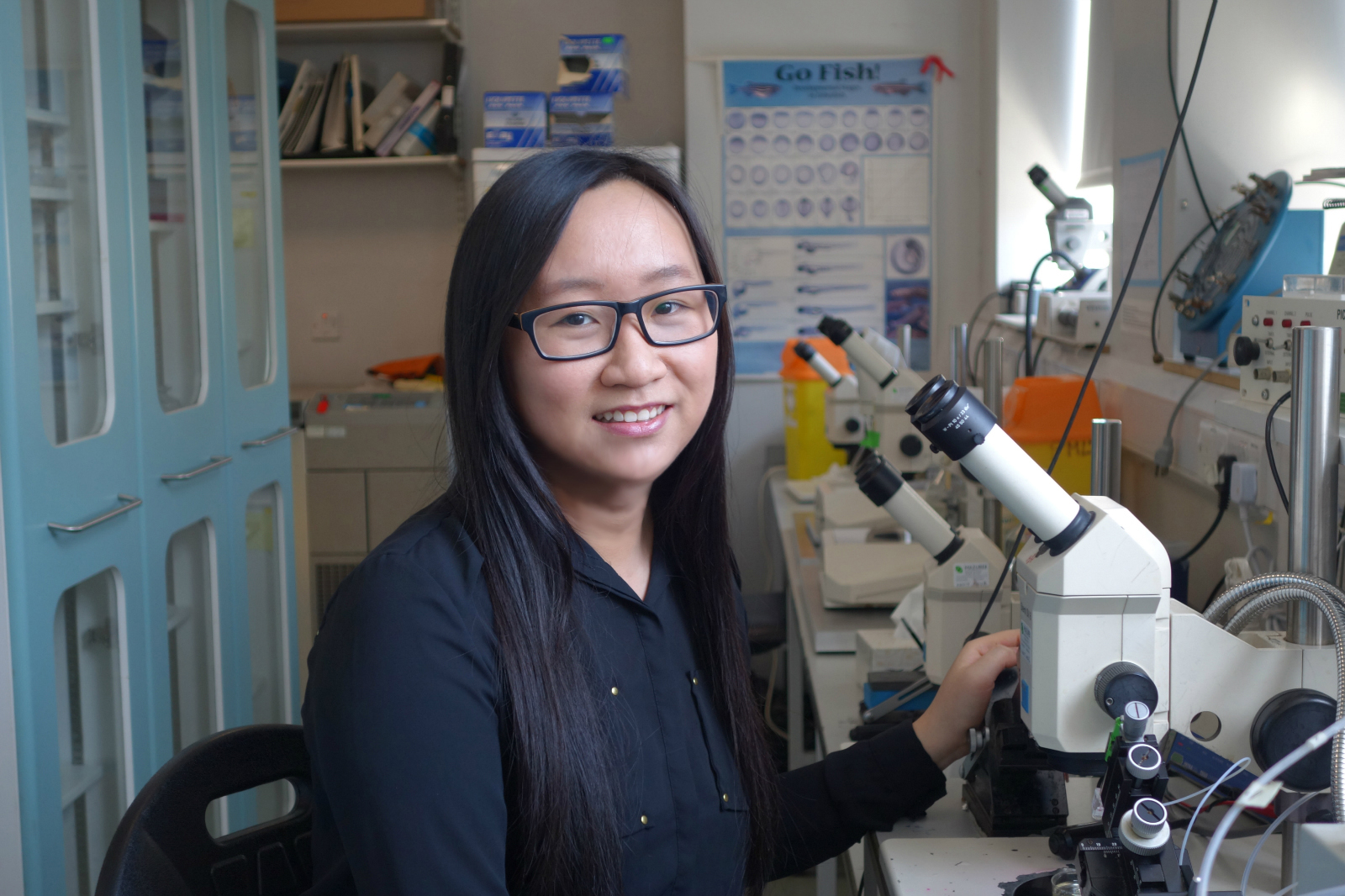
Dr Julie Qiaojin Lin is named an emerging leader in dementia research by the UK Dementia Research Institute
As an early career researcher, this programme is a fantastic opportunity for building up my independent research skills and extensive collaborations.
Dr Julie Qiaojin Lin
A Gates Cambridge Scholar has been recognised as an Emerging Leader in dementia research by the UK Dementia Research Institute (UK DRI).
Dr Julie Qiaojin Lin [2013] has been named one of 11 Emerging Leaders in the new initiative of the UK DRI. She is a Sir Henry Wellcome Postdoctoral Fellow in Professor Giovanna Mallucci’s Lab in the UK DRI at Cambridge University.
She joined the UK DRI in 2018 following her PhD training in Professor Christine Holt’s Lab at Cambridge as a Gates Cambridge Scholar, studying local protein synthesis in axons of healthy and disease-affected neurons. Her current research programme focuses on the dynamic localisation of RNA and proteins in neuronal compartments and how the localised molecules orchestrate synaptic structural and functional plasticity.
Using advanced imaging and multi-omics approaches, Dr Lin investigates early aberrant changes of local molecular organisation that ultimately lead to synapse loss and neurodegeneration.
Dr Lin says: “I am deeply honoured for the recognition as a UK DRI Emerging Leader and to be part of the network formed by a group of talented young scientists working towards the same goal – fighting, preventing and eventually curing dementia.
“As an early career researcher, this programme is a fantastic opportunity for building up my independent research skills and extensive collaborations. My current research aims to understand how synapses, the connection and information relay sites between neurons, maintain their structure by receiving supports from surrounding molecules, how neurological disease progression might affect various activities occurring around synapses, and how we might be able to help neurons protect themselves by rescuing synapses with signs of declining health.”












